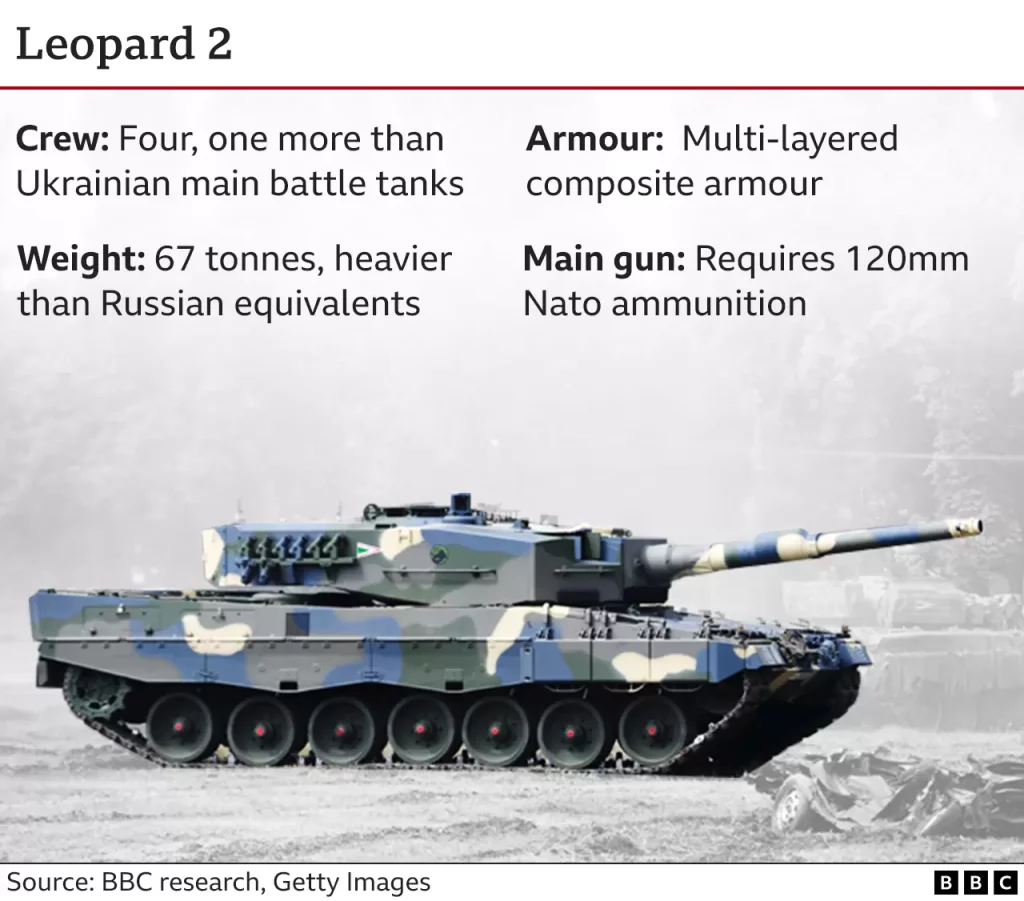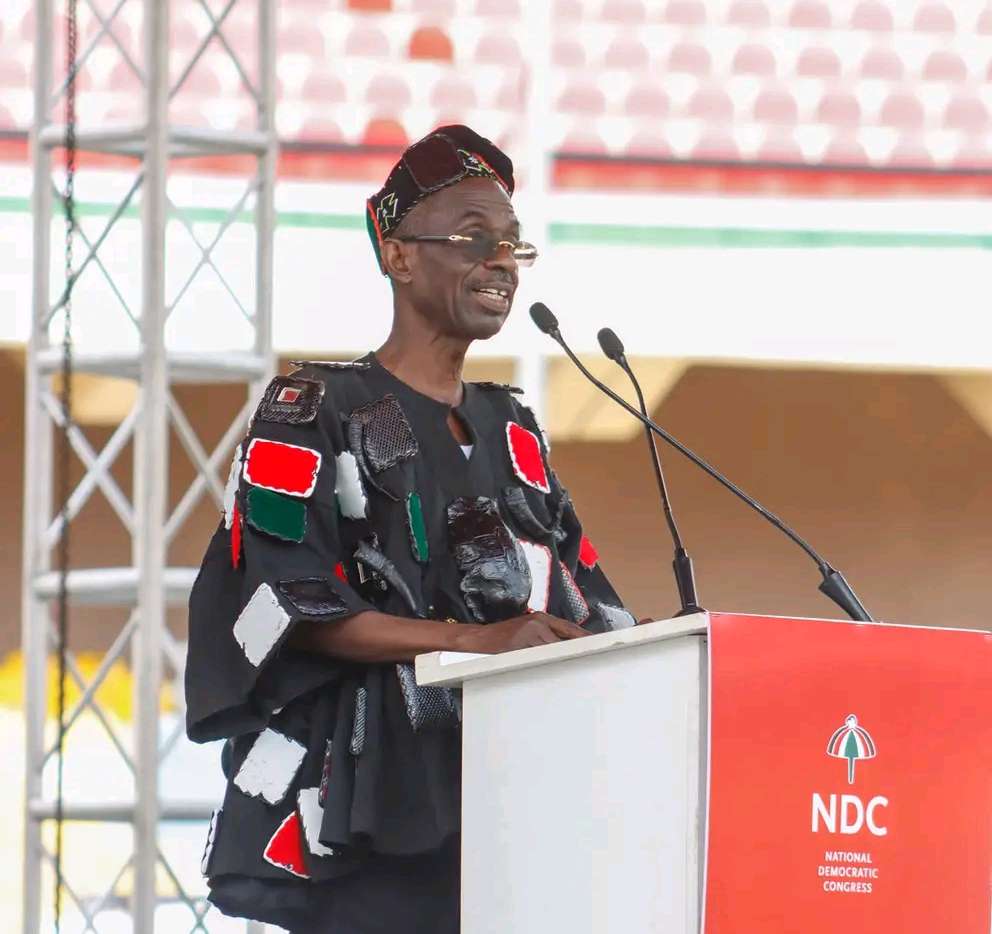German Chancellor Olaf Scholz has decided to send Leopard 2 tanks to Ukraine, and allow other countries to do the same, reports in Germany say.
Leopard 2s are made in Germany and Berlin needs to approve their export.
Germany has been hesitant to send its own – or allow other nations to send theirs – over concerns it could escalate the conflict with Russia.
Now, after international pressure, Mr Scholz has decided to send at least 14 Leopard 2s, German outlets say.
A company is usually 14 tanks – the same number of Leopards Poland wants to send, and the same number of Challenger 2 tanks the UK has already committed to Ukraine.
At least 16 European and Nato countries have Leopard 2 tanks, according to the International Institute for Strategic Studies.
Not all will send tanks to Ukraine – but Mr Scholz’s apparent decision now means they can, should they wish.
Ukraine is still unlikely to get the 300 modern main battle tanks it says it needs to win the war.
But if half a dozen Western nations each provide 14 tanks, then that would bring the total to nearly a hundred – which could make a difference.
Western tanks – including the UK’s Challenger 2, Germany’s Leopard 2 and the US-made Abrams – are all seen as superior to their Soviet-era counterparts, like the ubiquitous T-72.
They will provide Ukrainian crews with more protection, speed and accuracy.
But Western modern main battle tanks are not a wonder weapon or game-changer on their own. It’s also what’s being supplied alongside them.
In recent weeks, there’s been a step change in heavy weapons being supplied by the West – including hundreds more armoured vehicles, artillery systems and ammunition.
Combined together, they are the kind of military hardware needed to punch through Russian lines and to retake territory.
If Ukrainian troops can be trained and the weapons delivered in time, they could form key elements of any spring offensive. A missing element for offensive operations is still air power.
Ukraine has been asking for the West to provide modern fighter jets since the war began. So far, none has been delivered.

The news of Mr Scholz’s decision was broken by Der Spiegel in Germany, citing government sources, before being seemingly confirmed elsewhere.
There has been no official statement from the German government yet. The chancellor is due to address the German parliament on Wednesday morning.
However, Marie-Agnes Strack-Zimmermann of the liberal FDP party, who chairs the defence committee of the German parliament, welcomed the reports.
“The decision was tough, it took far too long, but in the end it was unavoidable,” she said, adding that it would come as a relief to “the battered and brave Ukrainian people”.
And senior Green politician Katrin Göring-Eckardt, who is one of the vice-presidents of the lower house of parliament, the Bundestag, celebrated the move by tweeting in English: “The Leopard’s freed!”
Allied nations had become frustrated at what they perceive as German reluctance to send the armoured vehicles in recent days.
Polish PM Mateusz Morawiecki told the BBC earlier on Tuesday that Germany had a “special responsibility” to support Ukraine, having built up “huge Russian funds” before the war by buying its gas.
He also accused Germany of “delaying, dodging, acting in a way that is difficult to understand”.
German Defence Minister Boris Pistorius earlier said that Berlin had given other nations the green light to train Ukrainians to use Leopard 2 tanks, but did not commit to sending their own.
Miguel Berger, Germany’s ambassador to the UK, told the BBC on Tuesday that decisions would “not be driven by the news cycle”.
Meanwhile, the Wall Street Journal reports that the United States could send a significant number of Abrams M1 tanks to Ukraine, with an announcement possible this week.
The Ukrainian president’s chief of staff, Andriy Yermak, on Tuesday called on Western countries to give Kyiv hundreds of tanks to form a “crushing fist” against Russia.
“Tanks are one of the components for Ukraine to return to its 1991 borders,” he wrote on Telegram after the reports emerged of Germany agreeing to send tanks.










































